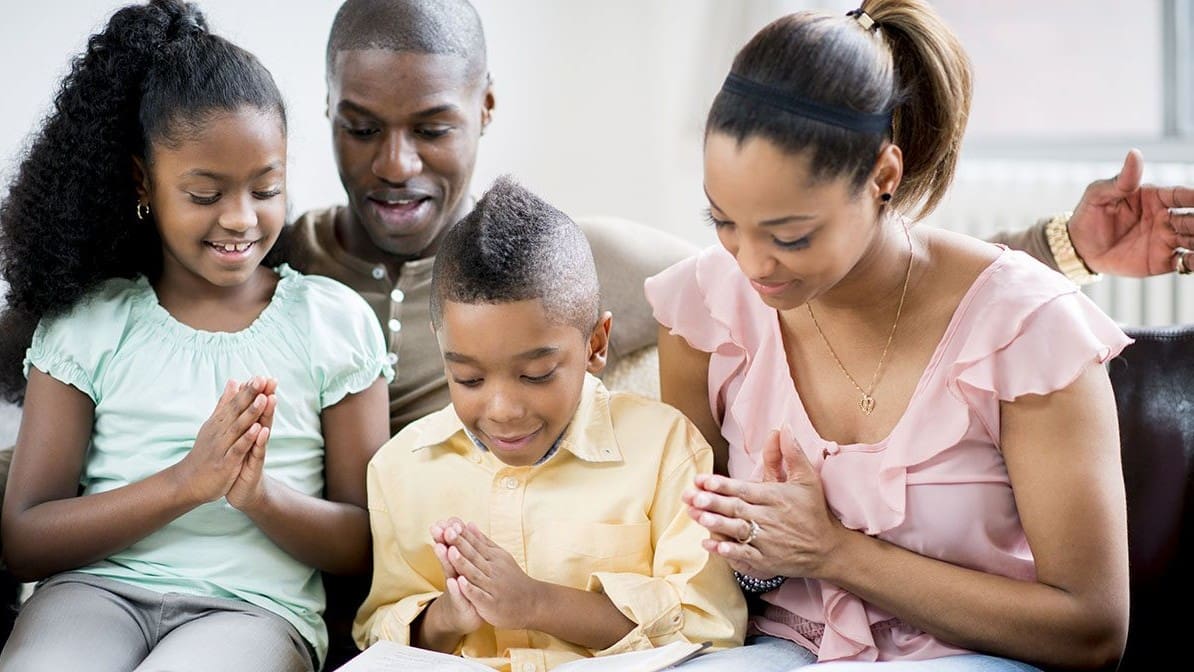
Honest Answers: Exploring God Questions with Your Tween (Part 1)
Part 1 of an Interview with Janelle Alberts and Ingrid Faro, Authors of Honest Answers: Exploring God Questions with Your Tween
Who would have thought a month ago that we would be facing so much fear and uncertainty? There are so many unknowns, so many questions, and if we have them, we know our kids have them too. And they are going to be asking a lot of them in the coming weeks, including questions about God’s goodness and if prayer works. Are we prepared to answer their questions concerning faith? Janelle Alberts and Ingrid Faro set out to help parents confidently have these hard conversations with their new release, Honest Answers: Exploring God Questions with Your Tween (Kregel Publications).
The tween years present an incredible opportunity to build trust with kids and to keep them coming back to their parents for answers rather than finding other sources. With the tools and conversational tips in Honest Answers, moms and dads can engage in a hopeful conversation and help their children build a Christian faith to hold them steady their whole lives.
Q: At what age do kids generally start asking faith questions that aren’t easy to answer?
Janelle Alberts: That depends. My kids each started in with questions that gave me pause before they hit double-digit ages. But the irony is they were easy questions, rather obvious observations such as, “Wait, I thought it was two by two?” when we hit the line in the Noah story that he was to take “seven pairs” rather than the “two of every kind” that we had read in the chapter before.
It’s no wonder that Jesus said we should all accept the kingdom of God like a child, because little kids happily embrace the core tenets of our faith with such abandon. It’s that very sweet, simple acceptance that our kids bring to bear when they then try their faith on for size, like my son when he started reading the Bible for himself—only to lob at us over breakfast the next day, “That book is not like the pages we’ve been coloring at vacation Bible school.”
We parents want to feel confident enough to say to our kids, “Let’s talk about that,” right at their point of interest. However, that is not an easy thing to do. These core tenets of our faith have been debated over centuries and have involved councils, creeds, Bible translations, extraordinary feats of faith, and also terrible behavior.
But we’re the parents. These kids want to know what there is to know from us. If our kids see a pattern that when they come to us, they get honest, forthright discussion even if we do not know every answer, that will keep them coming to us as a resource as they mature in their faith.
Ingrid Faro: It also depends on what life circumstances your child might have encountered.
My son began asking tough questions about death and monsters, what happens when someone dies, why people kill other people, what heaven is like, and what angels look like around age four or five.
Q: What are some of the most common questions that come up about how the Bible came together and was handed down to us today?
There are a number of common questions, depending on kids’ ages. How did we get the Bible here in our hands from so long ago? Who wrote it exactly? My friend has Bible sections that are different than mine—why? What can I tell my friend who has never been to church or read a Bible? How are Bible stories different than stories we hear at school about Mayan civilization or Greek mythology?
We may not have perfect responses on the spot, but that’s not what parents are on the hook to deliver in every situation. We are on the hook to give our kids permission to dig into God’s Word and into their faith honestly, even if this does not showcase us as perfect parents like we wish it would. That’s okay for one reason in particular: God’s given us that permission for years.
This can feel scary as a parent, but remember, dialegomai was good enough for Paul and the apostles as they discussed, disputed, and reasoned out the ways of God and how to spread the truth. God will be with us while we handle our children with that same verve and commitment, even if it looks messy.
Q: For us as adults, it’s hard to understand what seem to be unanswered prayers, so how do we explain not getting the answers we were hoping for to our children?
These times emphasize that one should not be a Christian alone. It makes a monumental difference for our kids to see others in the church who have suffered the anguish of perceived unanswered prayers and how they have still walked that out in faith.
To that end, we can let our kids know that prayer is a chance for them to sort out their relationship with God even more than it is about asking for stuff. So when they’re disappointed, mad, hurt, or confused by what they perceive as unanswered prayer, we can let them know they can take that to God.
That’s what Jesus did. When the moment came for Jesus to face what was about to happen to him in the garden of Gethsemane, Jesus did not sit by stoically, calmly praising the Father and counting his blessings. He was distraught and brought that before his Father bluntly and emotionally. We can encourage our kids to do the same. They can pray as though God wants to hear the actual truth of what’s going on in their hearts and minds—because he does!
We walk through conversations that help kids practice prayer, speak candidly, and maintain and grow in awe and affection of a Lord who personally and palpably loves them very, very much.
Q: What does it mean to practice “praying unedited”? Why is this an important part of teaching your children how to pray?
“Praying unedited” is an idea from a lecture by Redeemer Presbyterian Church’s Kathy Keller. The idea is that prayer helps us get a grip on who we are and who God is, yet it is a process that may take a little time and even, dare we say, trial and error. “Practice, practice, practice. Trial and error, repetition,” Keller said. “Just like riding a bike, you get it wrong a whole lot of times before you get it right.” With that kind of foundation, our kids stand a better shot at sticking with prayer over the long haul, rather than abandoning it when times get tough.
Kids regularly pick up a habit of fear when it comes to prayer. They can grow afraid to speak honestly in prayer because it might look to God like they doubt him. But prayer is not an entrance exam for our kids to showcase their “goodness” to God and therefore score a spot in his valued family. We want our kids to know they already belong. God wants our kids to know that he knows them and wants to be known by them. His longing for this cannot be overstated. That is a good reason for our kids to be themselves in prayer.
If our kids can approach God’s throne with a real sense of honesty and with an eye for relationship, their prayers will be personal, not just something they recite.
This kind of praying and talking to God is demonstrated throughout the Bible in the psalms of lament (which make up about one-fourth of the Psalms) and other parts of the Bible, like Lamentations and in many of the prophets.
Q: How can parents prepare for the Bible versus science questions that are sure to come up as their kids progress through school? This is probably something parents are really facing now that the kids are doing school from home.
We can be honest with ourselves that our attempts to neatly marry truths of God’s material world (science) to God’s written truths (Scripture) in clear, cogent, concise ways regularly turn out to be . . . none of those things. Yet God made nature, and he made Scripture. Digging deeper into one shouldn’t threaten the truth about the other.
We run into a bind when we insist the Bible should serve as a science textbook. For example, our church forefathers insisted the sun circled the earth rather than the other way around. Martin Luther wrote, “As Holy Scripture tells us, so did Joshua bid the sun to stand still, and not the earth.”
We might help our kids by listening to a church forefather even further back in time. Third-century bishop Augustine of Hippo warned believers that we “should not rush in headlong and so firmly take a stand on one side that, if further progress in search for truth justly undermines our position, we too fall with it.”
Almost two thousand years later, we Christian parents can practice that. It’ll give our kids the learning chops necessary to evaluate theories and ideologies in patient, consistent, coherently systematic ways. It’ll help our kids develop a steadfast resolution that all truth originates from the same author.
Why is this important? Because it’s true.
Q: How can parents prepare their children to react well when their faith is brought into question? How do they equip them to speak the truth?
It depends on the situation at hand, but a general encouragement might be this: God is real.
We can let our kids know directly and repeatedly that we, their parents, know God is alive. We can also give them personal examples from our own lives about why we believe that:
- How we came to that faith
- Instances where we faced others calling our faith into question
- Our own doubts and how God has called us back to that truth over and over again
We can encourage our kids to remember that they are not defending a religion; they are building a relationship with a God who wants to have relationship with everyone, even though not everyone wants a relationship with him. That is a complicated matter, but our job (especially as younger Christians) is to simply walk out the relationship we are developing and enjoying with God. That way when our friends have questions, we can honestly answer what we know about praying to God, reading his Word, and getting to know God in context of our own walk with him.
Q: What question that one of your own children asked caught you most off guard or was the hardest to answer?
Janelle: When my daughter was in third grade, she prayed for her brother in kindergarten to win a raffle at school, but when he didn’t, she was crushed. I told her he was fine! After all, the most important thing remained true, which was this: God loved him.
She teared up and said, “This is what God’s love feels like?”
Ingrid: When my son was eleven, he asked why he couldn’t have died instead of his dad, who had taken his own life. The process of walking through that loss and pain took years, but the personal healing and restoration of relationship with God could not have happened if we hadn’t continued to talk and question and pray and love together.
…
Order your copy of Honest Answers: Exploring God Questions with Your Tween
Trending Now
Sign up today for your Inspiration Today Daily Newsletter
Supercharge your faith and ignite your spirit. Find hope in God’s word. Receive your Inspiration Today newsletter now!
Janelle Alberts
Janelle Alberts spent her early career in PR departments for Microsoft and UPS, boiling down logical, clear corporate messaging. She now attempts the same for parents who love Scripture, often featuring bits we’ve never heard but wish we had. Alberts wrote her first faith column for the Akron Beacon Journal in 2010 and has since been a regular contributor to various online sites including Christianity Today’s Gifted for Leadership, RELEVANT magazine, and others. Honest Answers is her first book. Alberts and her family make their home in Ohio.
Related Articles
April 18, 2024
Talking to Your Children About Tragedy
Watching my children hurt is one of the hardest things for me as a parent. There are moments where…
April 17, 2024
Engage in Family Prayer to Impact Lives
Grow closer as a family through prayer while helping your children to become prayer warriors and…
April 17, 2024
Fields of Grace: Passion, Cows, and Quitters
Excerpt taken from Fields of Grace: Sharing Faith from the Horse Farm by Cara Whitney Chapter 2…
Next Steps To Strengthen Your Walk
Submit A Prayer Request
We are here for you. Simply click on the button below to reach us by form, email or phone. Together we will lift our hearts and voices with you in prayer.
Partner WIth Us
Sow a seed of faith today! Your generous gift will help us impact others for Christ through our global salvation outreach and other faith based initiatives.
Inspiration TV
Watch Christian content from your favorite pastors, christian movies, TV shows and more.






